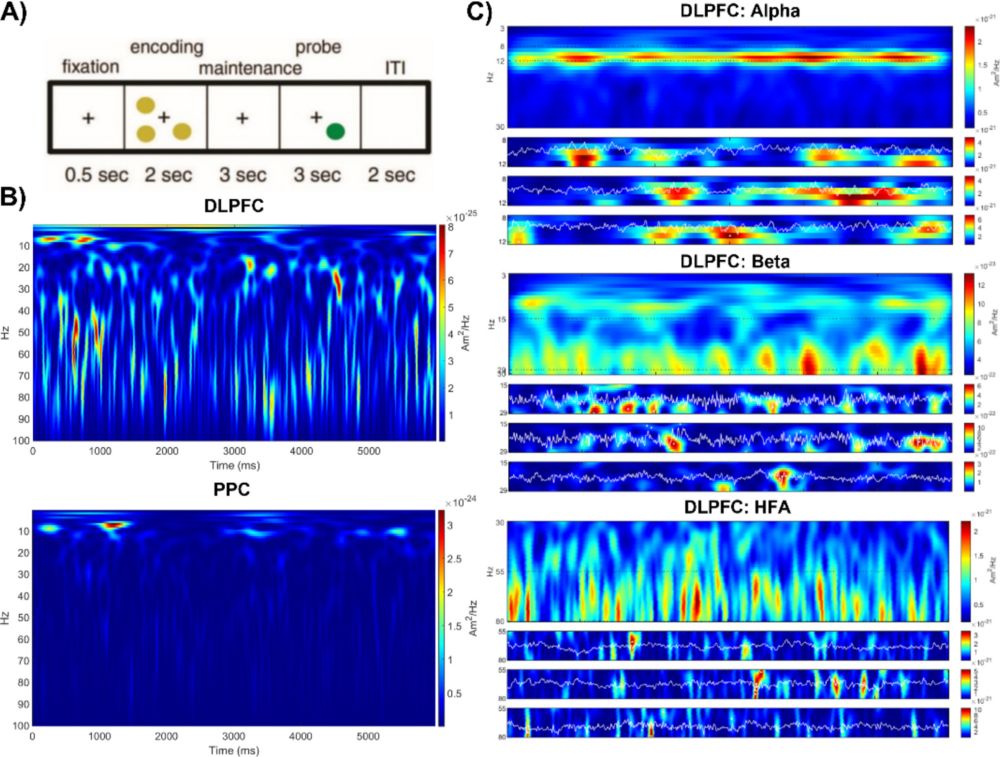Research interests: attention | long-term memory | working memory | EEG | machine learning
@sabomelinda.bsky.social
www.nature.com/articles/s44...

And here is the author's response to all comments: www.cambridge.org/core/journal... I found the target paper very thought-provoking, and Ruth's responses are insightful. But...
And here is the author's response to all comments: www.cambridge.org/core/journal... I found the target paper very thought-provoking, and Ruth's responses are insightful. But...
link.springer.com/article/10.3...
#neuroscience

link.springer.com/article/10.3...
#neuroscience
As a part of this paper, we also created the Transparent Statistical Reporting in Psychology checklist, which researchers can use to improve their statistical reporting practices
www.nature.com/articles/s44...

As a part of this paper, we also created the Transparent Statistical Reporting in Psychology checklist, which researchers can use to improve their statistical reporting practices
www.nature.com/articles/s44...

Faster contextual changes are associated with faster drift in hippocampal activity and reduced temporal clustering in recalled memories.
Elegant work led by @lindsayrait.bsky.social!
www.jneurosci.org/content/45/4...

Faster contextual changes are associated with faster drift in hippocampal activity and reduced temporal clustering in recalled memories.
Elegant work led by @lindsayrait.bsky.social!
www.jneurosci.org/content/45/4...
www.nature.com/articles/s41...
#neuroscience

www.nature.com/articles/s41...
#neuroscience
Multi-scale parameterization of neural rhythmicity with lagged Hilbert autocoherence
doi.org/10.1162/IMAG...

With current technology, it is impossible to tell whether survey respondents are real or bots. Among other things, makes it easy for bad actors to manipulate outcomes. No good news here for the future of online-based survey research

With current technology, it is impossible to tell whether survey respondents are real or bots. Among other things, makes it easy for bad actors to manipulate outcomes. No good news here for the future of online-based survey research
We study how our brains perceive and represent the physical world around us using behavioral, computational, and neuroimaging methods.
paulunlab.psych.wisc.edu
#VisionScience #NeuroSkyence

We study how our brains perceive and represent the physical world around us using behavioral, computational, and neuroimaging methods.
paulunlab.psych.wisc.edu
#VisionScience #NeuroSkyence
Friday (Nov.21), 3:30-5:30 Working Memory I
Does Reward-Based Prioritization Function
through the Same Mechanisms in Verbal and
Visual Working Memory?
TIMOTHY J. RICKER, University of South Dakota,
JOSHUA SANDRY, Montclair State University
Friday (Nov.21), 3:30-5:30 Working Memory I
Does Reward-Based Prioritization Function
through the Same Mechanisms in Verbal and
Visual Working Memory?
TIMOTHY J. RICKER, University of South Dakota,
JOSHUA SANDRY, Montclair State University
#SPM, #ICA, GLM, connectivity, mediation, MRI physics, #DataScience with @vcalhoun.bsky.social and Kent Kiehl.
We love talking methods & connecting with colleagues! Come join us!
Register here:
sites.google.com/dartmouth.ed...

#SPM, #ICA, GLM, connectivity, mediation, MRI physics, #DataScience with @vcalhoun.bsky.social and Kent Kiehl.
We love talking methods & connecting with colleagues! Come join us!
Register here:
sites.google.com/dartmouth.ed...
How easily can working memory create interference in long-term memories? Our new preprint, Interference Across Memory Systems: Disrupting Long-Term Memories Through Working Memory examines this
osf.io/preprints/ps...
w/ @sahcan.bsky.social Anna Lena Mantei, Daniel Schneider
How easily can working memory create interference in long-term memories? Our new preprint, Interference Across Memory Systems: Disrupting Long-Term Memories Through Working Memory examines this
osf.io/preprints/ps...
w/ @sahcan.bsky.social Anna Lena Mantei, Daniel Schneider


A neural state space for episodic memories
www.sciencedirect.com/science/arti...
#neuroskyence #psychscisky #cognition 🧪

A neural state space for episodic memories
www.sciencedirect.com/science/arti...
#neuroskyence #psychscisky #cognition 🧪
www.biorxiv.org/content/10.1...

www.biorxiv.org/content/10.1...

The position is funded as part of the Excellence Cluster "The Adaptive Mind" at @jlugiessen.bsky.social.
Please apply here until Nov 25:
www.uni-giessen.de/de/ueber-uns...

The position is funded as part of the Excellence Cluster "The Adaptive Mind" at @jlugiessen.bsky.social.
Please apply here until Nov 25:
www.uni-giessen.de/de/ueber-uns...
In our latest study, we describe a novel relationship between action planning and working memory. Our results show that action-item associations affect how working memory maintains the fidelity of sensory information during a task.
Check it out: www.biorxiv.org/content/10.1...

🔍 Hiring: PhD (75% TV-L) & Postdoc (100% TV-L)
🧠 fMRI, VR, EEG, modelling
We combine a range of cognitive neuroscience methods to study flexible behaviour.
📅 Start: Feb 2026 or later | ⏳ Apply by Nov 3!
More details:
tinyurl.com/ms3a9ajt
#CognitiveNeuroscience
🔍 Hiring: PhD (75% TV-L) & Postdoc (100% TV-L)
🧠 fMRI, VR, EEG, modelling
We combine a range of cognitive neuroscience methods to study flexible behaviour.
📅 Start: Feb 2026 or later | ⏳ Apply by Nov 3!
More details:
tinyurl.com/ms3a9ajt
#CognitiveNeuroscience
Entorhinal grid-like codes for visual space during memory formation in @natcomms.nature.com ➡️ rdcu.be/eLRm2
Big thanks to everyone @isabellacwagner.bsky.social, @tobiasstaudigl.bsky.social, @olejensen.bsky.social, @doellerlab.bsky.social, @clauslamm.bsky.social

Entorhinal grid-like codes for visual space during memory formation in @natcomms.nature.com ➡️ rdcu.be/eLRm2
Big thanks to everyone @isabellacwagner.bsky.social, @tobiasstaudigl.bsky.social, @olejensen.bsky.social, @doellerlab.bsky.social, @clauslamm.bsky.social



